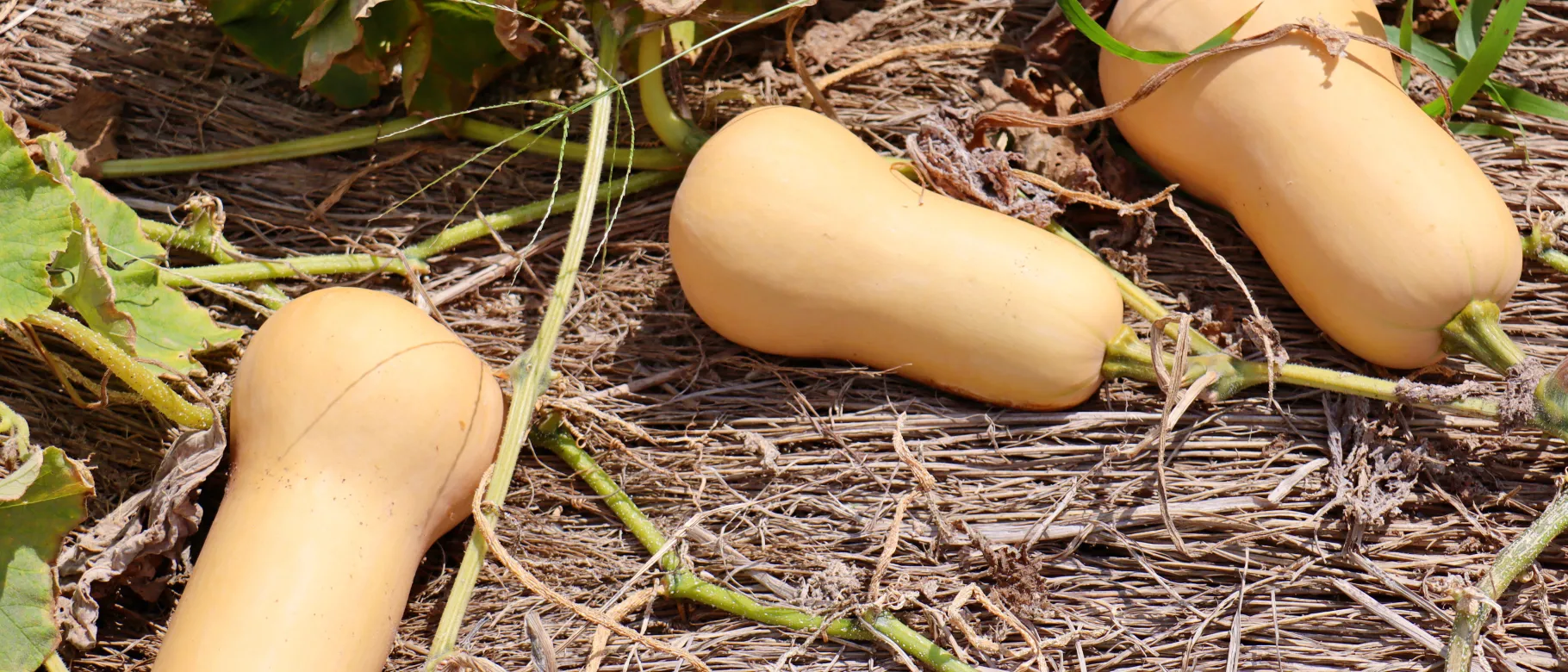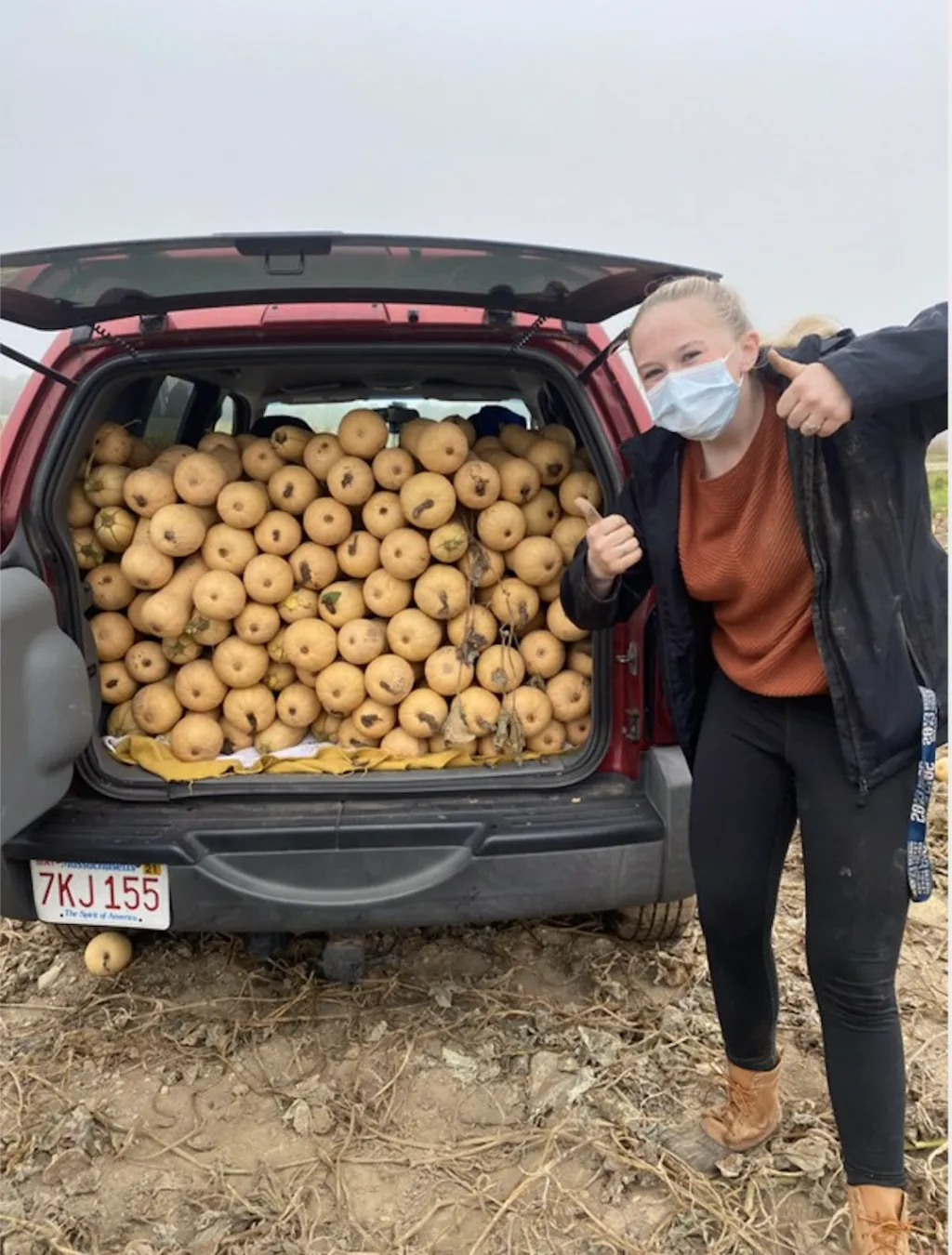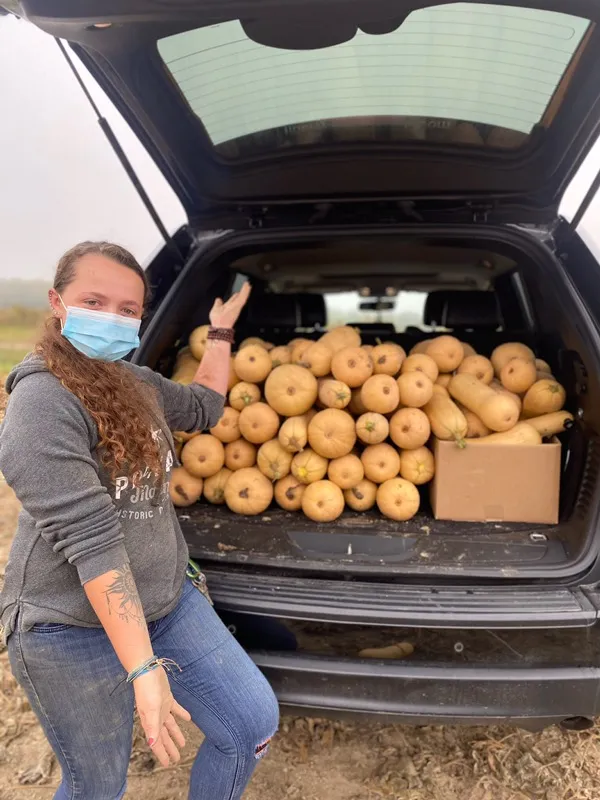UNE students work to squash hunger in York County

Two students involved in the University of New England’s Hunger Initiative Club recently gleaned butternut squash from the fields of Leary Farm in Saco, an effort that reduces food waste on local farms while helping feed hungry people in the community.
Emily Morris (Medical Biology, ’23) and Catreana Ellerton (Biological Sciences, ’23) visited Leary Farm on Sept. 26. to glean the squash.
Gleaning is a practice used to gather surplus food after farmers are done harvesting. The farm and farmer, Tim Leary, have for four years partnered with UNE and the Sustainability Office to donate surplus produce to local food pantries.
Leary Farm sells value-added, pre-peeled butternut squash to local grocers, leaving misshapen or crooked-necked squash in the fields. Enter UNE’s Hunger Initiative Club students, who provide the manual labor necessary to pick the squashes.
“This gleaning project does good on so many levels,” said Alethea Cariddi, assistant director of Sustainability at UNE. “The students have an opportunity to interact and learn from a local, multi-generational farm. Leary Farm gets some extra hands to pick the crop, so it’s not wasted, and local food pantries and low-income families benefit from Leary’s generosity and the students’ labor.”
“It’s win-win-win,” she added.
The two students spent a sunny Saturday morning picking nearly 300 pieces of butternut squash weighing upward of 1,000 pounds. They brought them to several pantries the following Monday, including the Alfred Food Pantry at Chapel Hill, Saco Food Pantry, the Biddeford Bon Appetite Meal Program, and First Baptist Church in Portland.
The deliveries will help combat food insecurity in those communities.
The U.S. Department of Agriculture’s Economic Research Service reports that 13.6% of Maine households were food insecure in 2019, a rate higher than the national average — even before the pandemic, which itself complicated the students’ work.
Because University transportation was not available, Morris and Ellerton had to drive themselves in separate vehicles, but that did not dissuade them from doing good for their communities.
“Volunteering to glean and donate the squash to local pantries certainly made me realize how common food insecurity is in the Biddeford and surrounding communities, and I’m so grateful to be part of a club that focuses on solving this problem,” Morris said.

